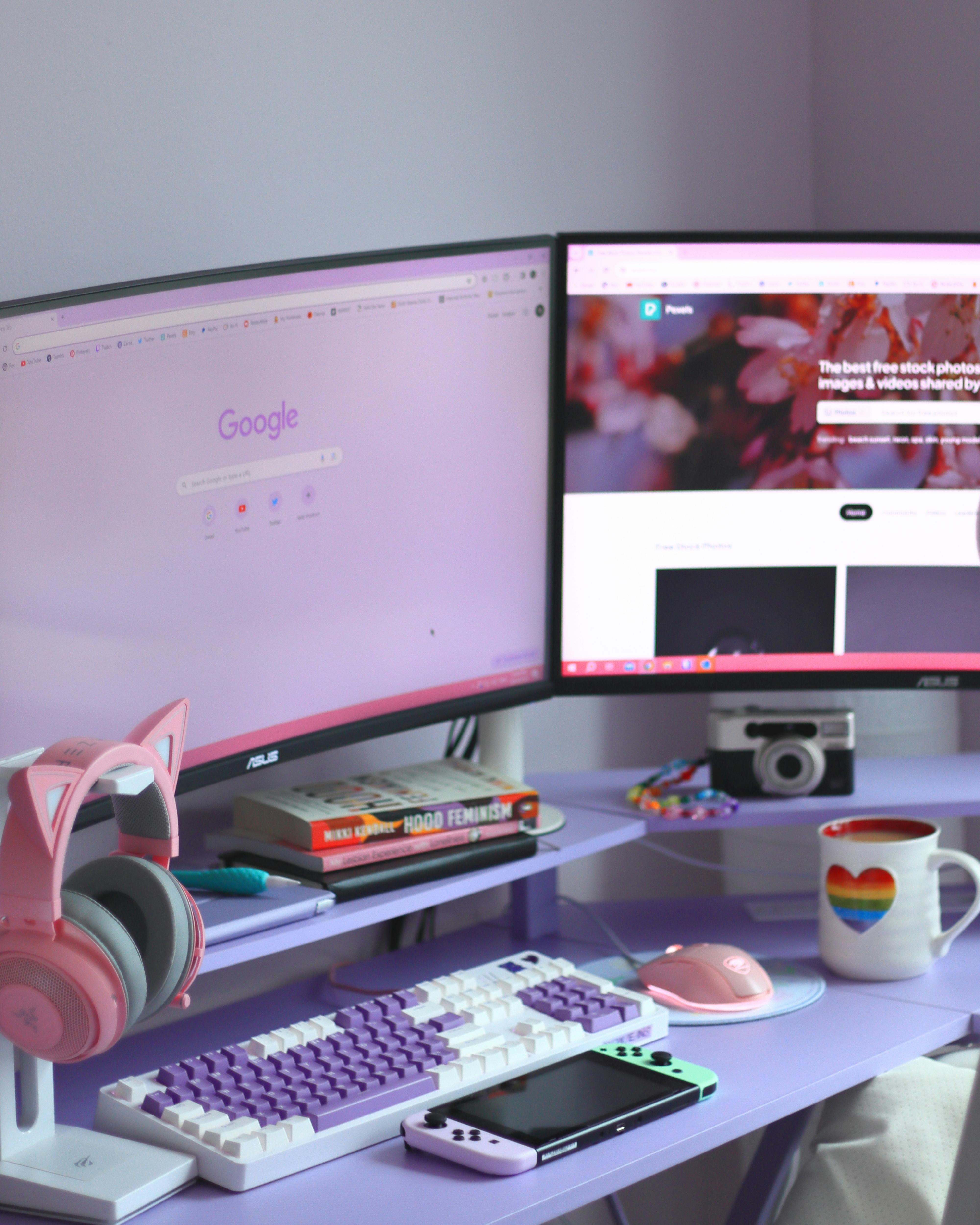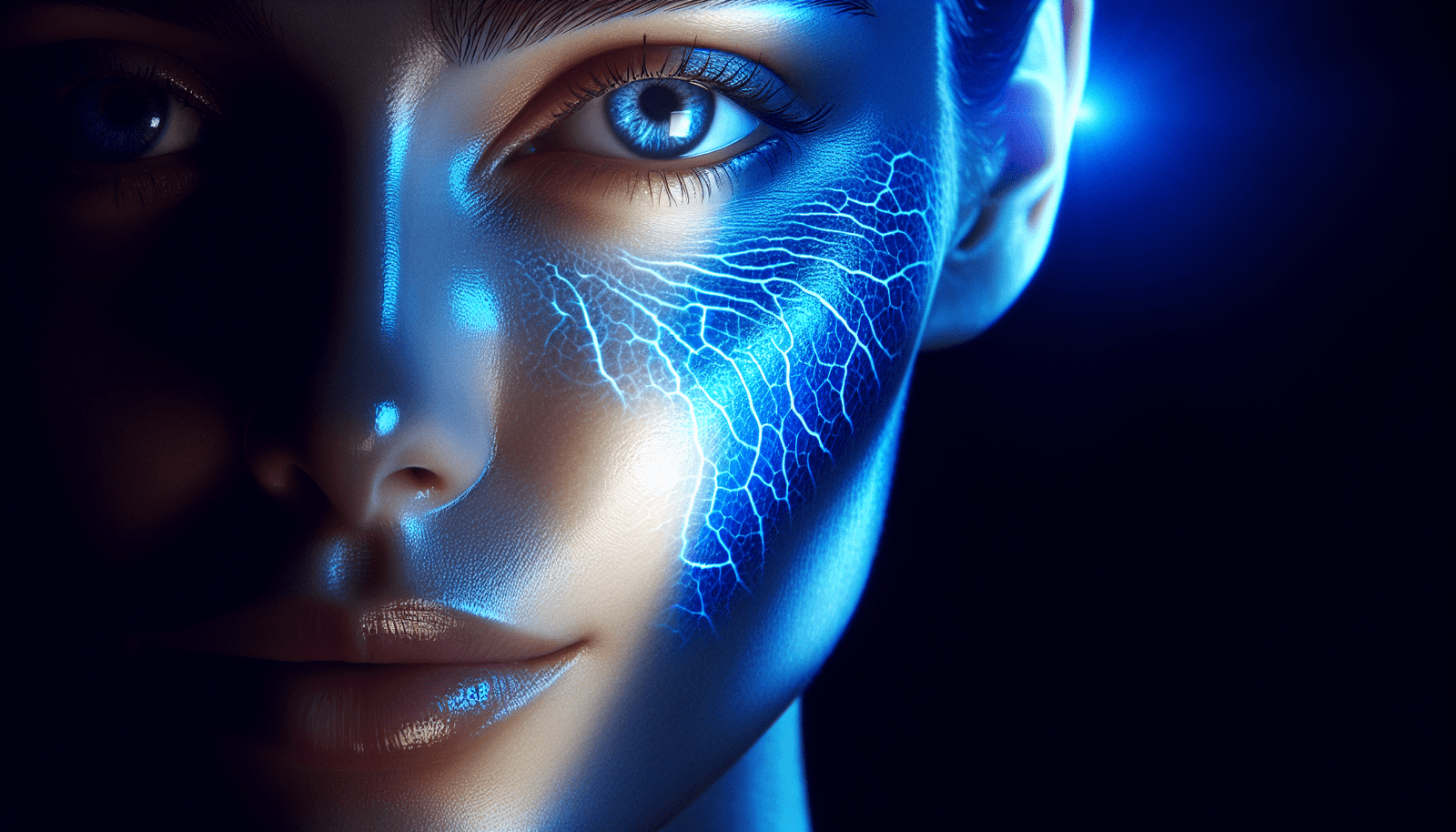Have you ever wondered about the impact of blue light from screens on your skin aging? In our digital age, where screens are an integral part of our everyday lives, it’s important to understand how this constant exposure may be affecting our skin. Blue light, emitted by electronic devices such as smartphones, tablets, and computers, has the potential to harm our skin over time. This article will explore the effects of blue light on skin aging, shedding light on the potential risks and offering insights on how to protect your skin in the digital era.
Introduction
Blue light is a type of high-energy visible light that is emitted by various sources, including electronic screens such as smartphones, tablets, and computers. With the increased use of these devices in our daily lives, our exposure to blue light has also significantly increased. This raises concerns about its potential effects on our skin and its contribution to the aging process.
Understanding Skin Aging
Skin aging refers to the natural process by which our skin gradually loses its elasticity, firmness, and youthful appearance over time. It is influenced by a combination of intrinsic factors, such as genetic predisposition and hormonal changes, as well as extrinsic factors, including sun exposure, pollution, and lifestyle choices.

Blue Light and Its Sources
What is blue light?
Blue light is a specific wavelength of light that falls within the visible light spectrum. It has a shorter wavelength and higher energy compared to other colors. Natural blue light is emitted by the sun, while artificial blue light is emitted by electronic devices and energy-efficient lighting.
Natural sources of blue light
The primary natural source of blue light is the sun. Sunlight is composed of a broad spectrum of light, including blue light. While natural exposure to the sun is essential for our overall health, excessive and unprotected exposure can accelerate skin aging.
Artificial sources of blue light
Electronic devices such as smartphones, tablets, computers, and televisions emit artificial blue light. In our modern digital age, we spend hours each day exposed to blue light from these electronic screens. Long-term exposure to artificial blue light is a growing concern, as it may have detrimental effects on our skin.
How Blue Light Affects the Skin
Impact on collagen production
Collagen is a protein that provides structure and elasticity to the skin. Blue light has been shown to penetrate the skin deeply and can potentially disrupt collagen production. This disruption can lead to a loss of skin firmness and the development of fine lines and wrinkles.
Increased oxidative stress
Blue light exposure can increase the production of reactive oxygen species (ROS) in the skin. These ROS can cause oxidative stress, leading to cellular damage and inflammation. Prolonged exposure to blue light-induced oxidative stress can contribute to accelerated skin aging.
Skin barrier function disruption
The skin’s barrier function is crucial for maintaining hydration and protecting against external irritants. Blue light exposure has been found to impair the skin’s barrier function, making it more susceptible to moisture loss and damage from environmental factors. This disruption can result in dryness, sensitivity, and an overall compromised skin barrier.

Ways Blue Light Accelerates Skin Aging
Increased fine lines and wrinkles
Due to its ability to penetrate deeply into the skin, blue light can contribute to the formation of fine lines and wrinkles. The disruption of collagen synthesis and increased oxidative stress can weaken the skin’s supportive structure, leading to the development of premature signs of aging.
Hyperpigmentation and dark spots
Blue light exposure can also trigger the overproduction of melanin, leading to hyperpigmentation and the formation of dark spots on the skin. This is particularly noticeable in areas of the face that are consistently exposed to blue light, such as the forehead, cheeks, and chin.
Loss of skin elasticity
Collagen is responsible for maintaining the skin’s elasticity and firmness. Blue light-induced collagen disruption can result in a loss of skin elasticity, causing the skin to appear saggy and less toned.
Specific Skin Conditions Aggravated by Blue Light
Acne and breakouts
Blue light exposure has been shown to stimulate the production of sebum, the skin’s natural oil. This can contribute to the development of acne and breakouts, particularly in individuals who are already prone to these skin conditions. The inflammation caused by blue light can further exacerbate acne symptoms.
Inflammation and redness
Blue light-induced oxidative stress and inflammation can lead to increased redness and irritation in the skin. For individuals with conditions such as rosacea or sensitive skin, prolonged exposure to blue light can trigger flare-ups and worsen existing inflammation.
Skin sensitivity and dryness
The disruption of the skin barrier function by blue light can result in increased skin sensitivity and dryness. This can make the skin more prone to irritation and discomfort, further compromising its overall health and appearance.

Protecting the Skin from Blue Light
Using blue light filters
One effective way to protect the skin from blue light is by using blue light filters or screen protectors on electronic devices. These filters work by reducing the amount of blue light emitted and reaching the skin’s surface. By minimizing direct exposure, the potential damage to the skin can be significantly reduced.
Adjusting screen settings
Most electronic devices offer settings that allow users to adjust the color temperature and brightness levels. By lowering the blue light emission and reducing the overall brightness, the impact on the skin can be minimized. These settings are often referred to as “night mode” or “blue light filter” options.
Taking regular screen breaks
Another practical measure to protect the skin from blue light is to take regular breaks from electronic screen use. By giving your skin and eyes a rest from the constant exposure, you can reduce the potential negative effects on your skin. Additionally, incorporating screen-free activities into your daily routine can promote overall well-being and balance.
Skincare Products and Ingredients for Blue Light Protection
Antioxidants
Including antioxidants in your skincare routine can help combat the oxidative stress caused by blue light exposure. Antioxidants such as vitamin C, vitamin E, and green tea extract have been shown to neutralize free radicals and minimize the damage to skin cells. Look for skincare products that contain these ingredients to provide additional protection against blue light.
SPF
Sunscreen is a vital component of any skincare routine, especially when it comes to protecting the skin from blue light. Look for broad-spectrum sunscreens with an SPF of 30 or higher to ensure adequate protection. Apply sunscreen daily, even when indoors, as blue light can still penetrate windows and reach the skin.
Screen-friendly moisturizers
Using moisturizers specifically formulated to protect against blue light can provide an extra layer of defense. Look for products that contain ingredients like niacinamide, hyaluronic acid, and ceramides, which help support the skin barrier function and provide hydration. These moisturizers can also help counteract the drying effects of blue light exposure.
Lifestyle Changes to Minimize Blue Light Damage
Reducing screen time
Limiting your overall daily screen time can significantly reduce your exposure to blue light. Set boundaries and dedicate specific times when you disconnect from electronic devices. Engage in other activities such as reading or spending time outdoors, allowing your skin and eyes to rest from constant blue light exposure.
Using blue light-blocking glasses
Blue light-blocking glasses are a popular option for reducing the direct exposure of blue light to the eyes and skin. These glasses have special lenses that filter out the blue light emitted by electronic devices, providing an added layer of protection. Incorporating blue light-blocking glasses into your daily routine can help minimize potential damage.
Creating a healthy skincare routine
Establishing a comprehensive skincare routine that addresses your skin’s specific needs can help minimize the potential damage caused by blue light. Cleanse, moisturize, and protect your skin with products tailored to your skin type and concerns. Consistency and diligence in maintaining a healthy skincare routine can go a long way in preserving the overall health and appearance of your skin.
Conclusion
With our increasing reliance on electronic devices, it is crucial to be aware of the potential effects of blue light on our skin. Understanding how blue light can accelerate the aging process and aggravate specific skin conditions can help us take proactive steps to protect our skin. By incorporating blue light filters, adjusting screen settings, and taking regular breaks from screen time, we can minimize the impact of blue light on our skin. Additionally, utilizing skincare products with blue light protection ingredients and making lifestyle changes to reduce exposure can further support the overall health and well-being of our skin. Remember, prevention is key when it comes to maintaining youthful and healthy-looking skin in the digital age.

